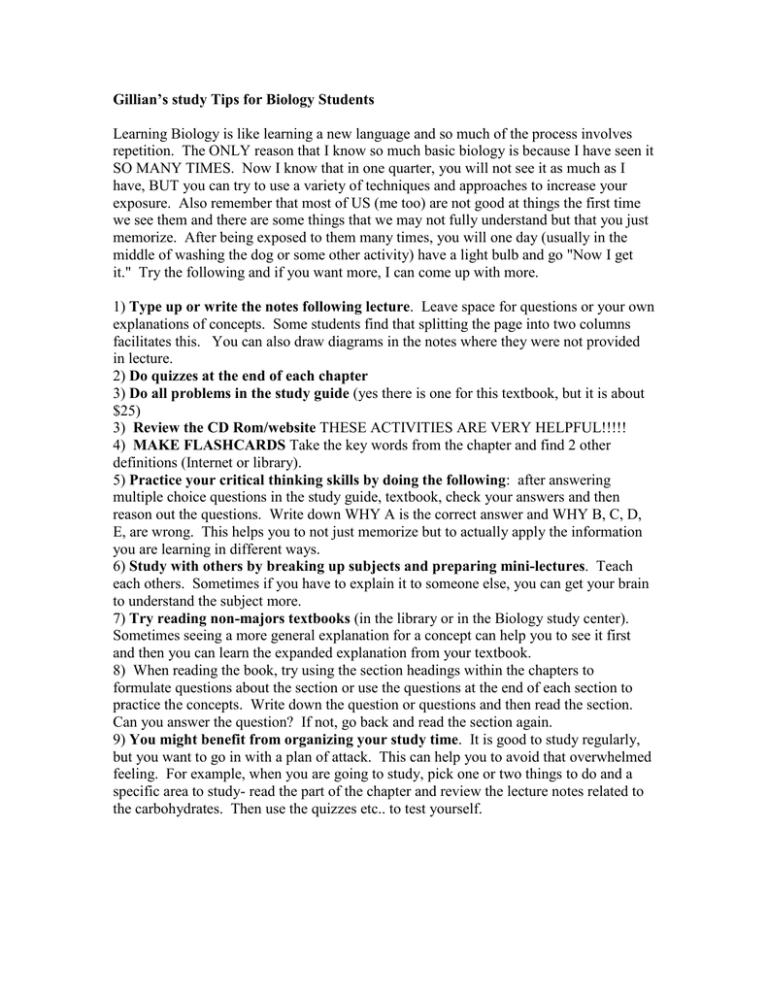Gillian’s study Tips for Biology Students
advertisement

Gillian’s study Tips for Biology Students Learning Biology is like learning a new language and so much of the process involves repetition. The ONLY reason that I know so much basic biology is because I have seen it SO MANY TIMES. Now I know that in one quarter, you will not see it as much as I have, BUT you can try to use a variety of techniques and approaches to increase your exposure. Also remember that most of US (me too) are not good at things the first time we see them and there are some things that we may not fully understand but that you just memorize. After being exposed to them many times, you will one day (usually in the middle of washing the dog or some other activity) have a light bulb and go "Now I get it." Try the following and if you want more, I can come up with more. 1) Type up or write the notes following lecture. Leave space for questions or your own explanations of concepts. Some students find that splitting the page into two columns facilitates this. You can also draw diagrams in the notes where they were not provided in lecture. 2) Do quizzes at the end of each chapter 3) Do all problems in the study guide (yes there is one for this textbook, but it is about $25) 3) Review the CD Rom/website THESE ACTIVITIES ARE VERY HELPFUL!!!!! 4) MAKE FLASHCARDS Take the key words from the chapter and find 2 other definitions (Internet or library). 5) Practice your critical thinking skills by doing the following: after answering multiple choice questions in the study guide, textbook, check your answers and then reason out the questions. Write down WHY A is the correct answer and WHY B, C, D, E, are wrong. This helps you to not just memorize but to actually apply the information you are learning in different ways. 6) Study with others by breaking up subjects and preparing mini-lectures. Teach each others. Sometimes if you have to explain it to someone else, you can get your brain to understand the subject more. 7) Try reading non-majors textbooks (in the library or in the Biology study center). Sometimes seeing a more general explanation for a concept can help you to see it first and then you can learn the expanded explanation from your textbook. 8) When reading the book, try using the section headings within the chapters to formulate questions about the section or use the questions at the end of each section to practice the concepts. Write down the question or questions and then read the section. Can you answer the question? If not, go back and read the section again. 9) You might benefit from organizing your study time. It is good to study regularly, but you want to go in with a plan of attack. This can help you to avoid that overwhelmed feeling. For example, when you are going to study, pick one or two things to do and a specific area to study- read the part of the chapter and review the lecture notes related to the carbohydrates. Then use the quizzes etc.. to test yourself.